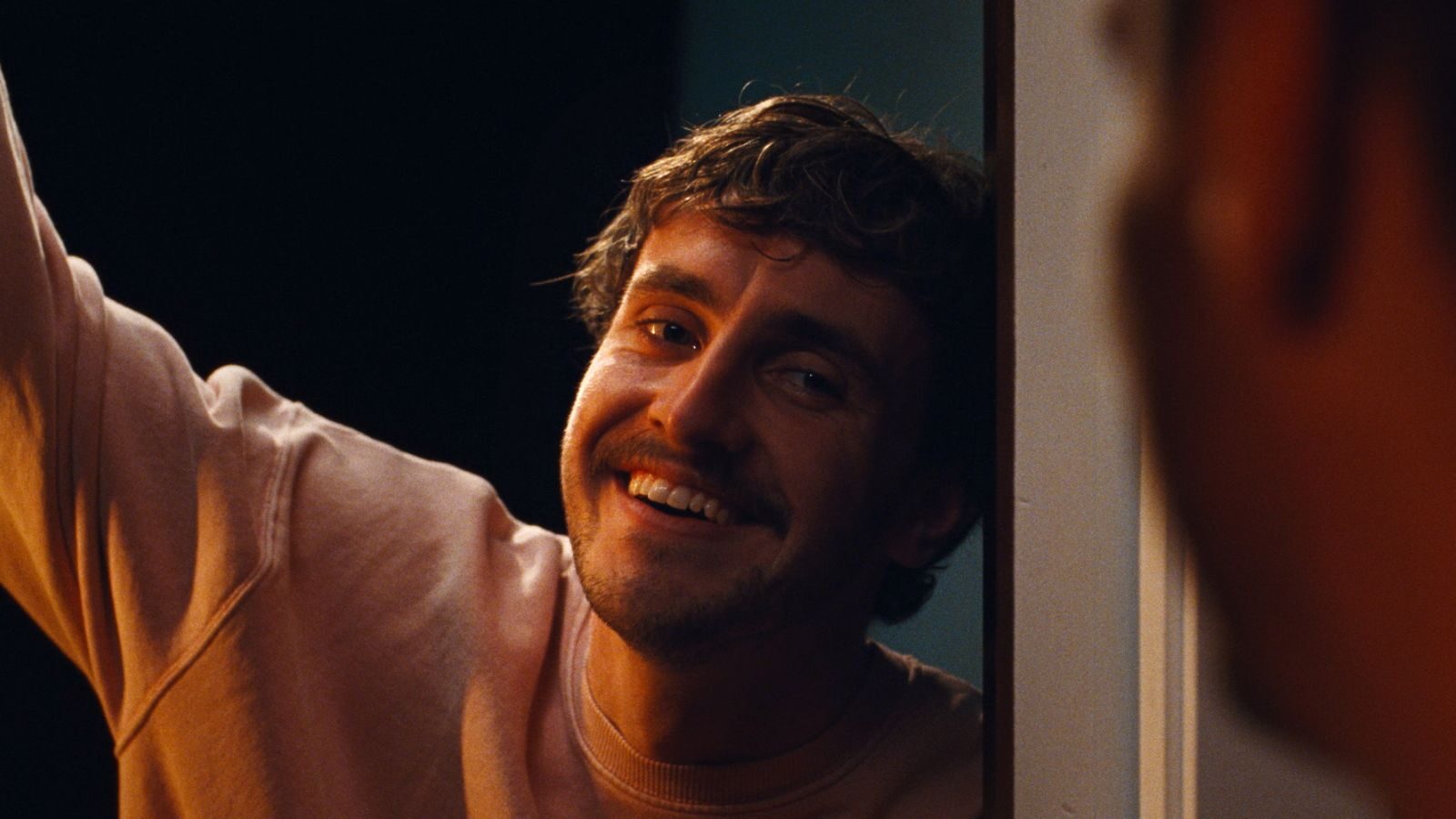
There are moments when it’s great to get lost within the haze of All of Us Strangers. One of the best scenes is where the two leads are dancing and making out with a night of partying, drinking, and sex. When realizing this is a story of surprises in perceptions and dwelling on the spirits of the past, one might question whether this scene is genuine or not, asking if this is all in the main character’s head. The answer is that it doesn’t matter. At that moment, the only thing that matters is the presence of two people feeling good about themselves.
That moment comes much appreciated for the lonely screenwriter Adam (Andrew Scott), living a quiet life in his London flat. Breaking this sadness is the charming neighbor, Harry (Paul Mescal), who is eager to find someone to drink with. Maybe even fuck them if he gets to know them long enough. This development makes Harry mildly excited to tell his parents (Jamie Bell, Claire Foy). It would seem like the only issue is that he hasn’t come out as gay to them. As it turns out, his parents are not even alive anymore, and Adam carries on conversations with their spirits during his hometown visits.
As the romance between Adam and Harry progresses, so does the level of acceptance between Adam and mortality. There’s an equal balance of sweetly passionate nights of sexual comfort as there are meaningful conversations about coming to terms with death. The way that Adam progresses through this internal journey is compelling, not merely for evoking the sadness of trauma and heartbreak but for how hard he strives to find something worth living for. By the film’s end, this somber level of comfort touches on a certain realization that life is fleeting and to enjoy the moment and spirit rather than lament its past.
For posing what is essentially a gay ghost story, it’s fascinating how this film manages to touch into something deeply spiritual in its catharsis for the gay experience. There’s a tender nature of cerebral staging, where everything from Adam’s coming-out talk with his parents to his naked embraces with Harry always carries this fragile air of not wanting to let go. This aspect makes it all the more understandable why Adam would want to regress to being a kid again. or have a mildly awkward conversation with his parents that he felt he missed out on. There are certain experiences we want to cherish, and we always feel we’re missing out on them or that they were robbed from us somehow. It makes the retreat into ghost conversations less of a coping mechanism and more of a necessary series of realizations about the finite nature of life and the infinite presence of love.
Something beautifully warm and comforting bubbles under the sad surface of All of Us Strangers. A release of earnest emotions and admittance to grief paints this picture with such a soothing level of bittersweet honesty. Combine this with the nuanced performances of Scott and Mescal; this is one of those films that will stay etched in the mind for the longest time. I still think about that final scene with Adam and Harry embracing each other in bed while Frankie Goes to Hollywood’s “The Power of Love” plays them out. It doesn’t matter if that song is too on the nose; it gets the point across beautifully and earns a heartfelt finale that is the perfect cocktail of melancholy and transcendence.

 “Deadpool & Wolverine” Review
“Deadpool & Wolverine” Review  “The Boys: Season Four” Review
“The Boys: Season Four” Review  “The American Society of Magical Negroes” Review
“The American Society of Magical Negroes” Review  “Twisters” Review
“Twisters” Review  “Sausage Party: Foodtopia” Review
“Sausage Party: Foodtopia” Review  “Robot Dreams” Review
“Robot Dreams” Review  “Godzilla x Kong: The New Empire” Review
“Godzilla x Kong: The New Empire” Review  “Slave Play. Not a Movie. A Play.” Review
“Slave Play. Not a Movie. A Play.” Review 


